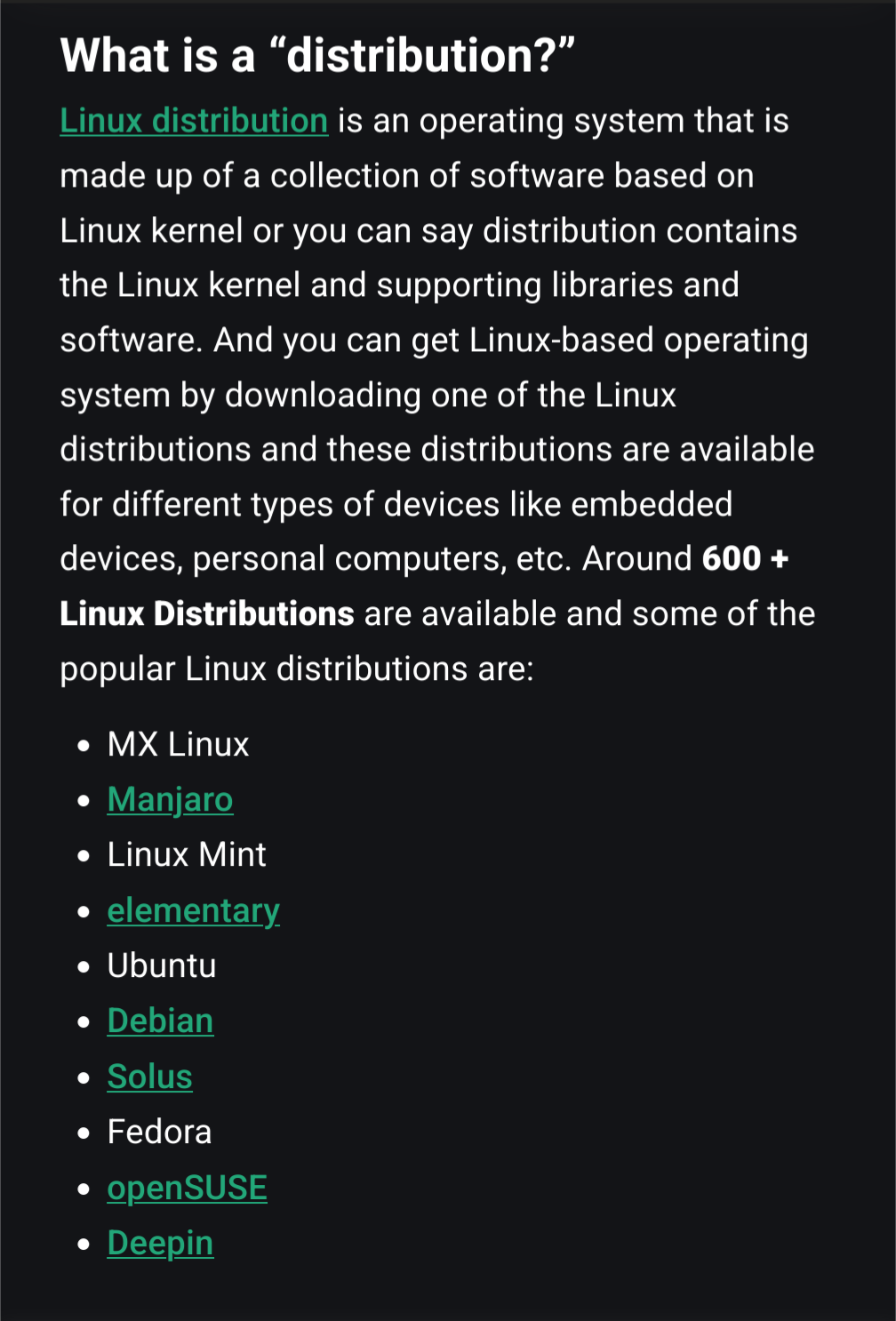79
Some basic questions about Linux
(sh.itjust.works)
From Wikipedia, the free encyclopedia
Linux is a family of open source Unix-like operating systems based on the Linux kernel, an operating system kernel first released on September 17, 1991 by Linus Torvalds. Linux is typically packaged in a Linux distribution (or distro for short).
Distributions include the Linux kernel and supporting system software and libraries, many of which are provided by the GNU Project. Many Linux distributions use the word "Linux" in their name, but the Free Software Foundation uses the name GNU/Linux to emphasize the importance of GNU software, causing some controversy.
Community icon by Alpár-Etele Méder, licensed under CC BY 3.0
This has some good info...
https://www.geeksforgeeks.org/introduction-to-linux-operating-system/
This article is conflating terms that I need help distinguishing between. The other commenter mentioned that Ubuntu is a type of Debian but this article lists Debian and Ubuntu as distributions.
Debian is a base distro, in your example. Other distros can be based upon other ones. Think of it like another layer; the distro maintainers look at Debian and say, "I like these aspects, but I think we can build upon that and make something even better!"
This means those distros with a "base" are
downstreamof theupstreamdistro base, and any time the upstream distro gets updates, the downstream ones will benefit.See the comment here: https://sh.itjust.works/comment/14684312
I'd say that the article is correct in calling them separate distributions.They are certainly related (both part of the Debian family), but I think most people would consider them to be separate distributions. Software built for Ubuntu 24.04 may work on Debian 12, but it might also not. For a beginner, I think it's most useful to consider them to be separate things.